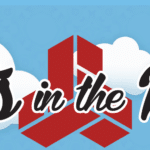Kestrel Tellevate LLC (KTL) has extensive experience working for a variety of clients across the U.S. and internationally, from small businesses to large industrial facilities to university systems and complex government agencies. We scale our solutions to fit a small startup or a large international company. Regardless of the client, our scientists, engineers, and compliance professionals offer industry-leading expertise in environmental, health, and safety (EHS); quality; and food safety management systems and compliance.
The regulatory compliance landscape has undergone substantial change – and more change is inevitable. This presents significant challenges that companies must address to remain in compliance, including:
- EHS regulatory uncertainty. Not surprisingly, EHS regulations are undergoing seismic shifts with the new Administration taking office. Some of these notable changes include EPA’s new Waters of the U.S. (WOTUS) rule, major Lautenberg Law Amendments to the Toxic Substances Control Act (TSCA), Chemical Safety Board’s (CSB’s) new Chemical Release Reporting Rule, and latest Clean Air Act (CAA) requirements for facilities. We continue to monitor and provide guidance on these and other issues impacting the industry, such as the current national incinerator backlog that has put companies that generate hazardous waste at risk for being out of compliance with accumulation time limits established by the EPA.
- Food safety requirements. Under the FDA’s Food Safety Modernization Act (FSMA), the scope of food safety regulatory and certification requirements is continuing to rapidly expand into packaging, supplements, warehousing, and more. Supply chain requirements are further driving non-traditional “food and beverage” companies (e.g., the CBD and supplements industries) to meet new requirements to stay in compliance — and in business.
- Enforcement. With the new Administration and resumed business activities, the frequency of comprehensive multimedia environmental inspections appears to be increasing. EPA’s regulatory enforcement is regaining momentum and likely will continue over the next few years. Preparation comes down to regularly evaluating compliance programs to make sure records are complete, compliant, and easily accessible at all times.
- Pandemic impacts. Changes due to COVID-19 have had a cascading impact on the way organizations and EHS/food safety operations work. With more staff working from various and often remote locations, cloud-based access to documents, records, and shared applications has become essential. Similarly, virtual monitoring methods also have become a necessity.
- EHS staffing. EHS department understaffing has long been reported as an issue. Many organizations do not have dedicated EHS resources, and many EHS departments consist of one individual who fulfills multiple roles. This is an area where EHS compliance efficiency and tracking tools are becoming essential to allow companies to do more with fewer resources.
Technology can facilitate access to critical compliance information, including documents, data, and records needed to manage projects and people. However, IT alone will not make compliance efforts effective or efficient unless there is an underlying Compliance Management System (CMS) to organize it all.
A CMS is used to coordinate, organize, control, analyze, and visualize information to help organizations remain in compliance and operate efficiently. A successful CMS requires thinking beyond just access to documents; it requires managing processes, knowledge, and the work that is critical to help identify and control business risks. That may include:
- Monitoring and updating changing regulatory compliance requirements across various agencies, geographies, and business activities to ensure compliance.
- Ensuring the right people can access the right information.
- Consolidating documents and records in a centralized location to provide easy access.
- Setting up formal business practices, processes, and procedures.
- Implementing compliance programs.
- Monitoring and measuring performance and making related improvements.
- Documenting decisions and how they are made.
- Capturing institutional knowledge and transferring that into a sustainable system.
- Using task management and tracking tools to ensure people are doing their work.
KTL builds scalable systems that allow companies to manage compliance and business processes more efficiently and effectively. We use Microsoft 365® and SharePoint® as dynamic information management tools that can be adapted and designed to capture data and provide consolidated reporting to all levels of management. This single platform allows for multiple solutions as part of an overall CMS that meets business and overall regulatory compliance management needs, while offering the familiarity that encourages employee buy-in and creates operational efficiency.
There is a wealth of opportunities available in the Wisconsin biohealth industry and the full Biohealth Innovation Territory (BIT). Learn more about careers at our career center.




